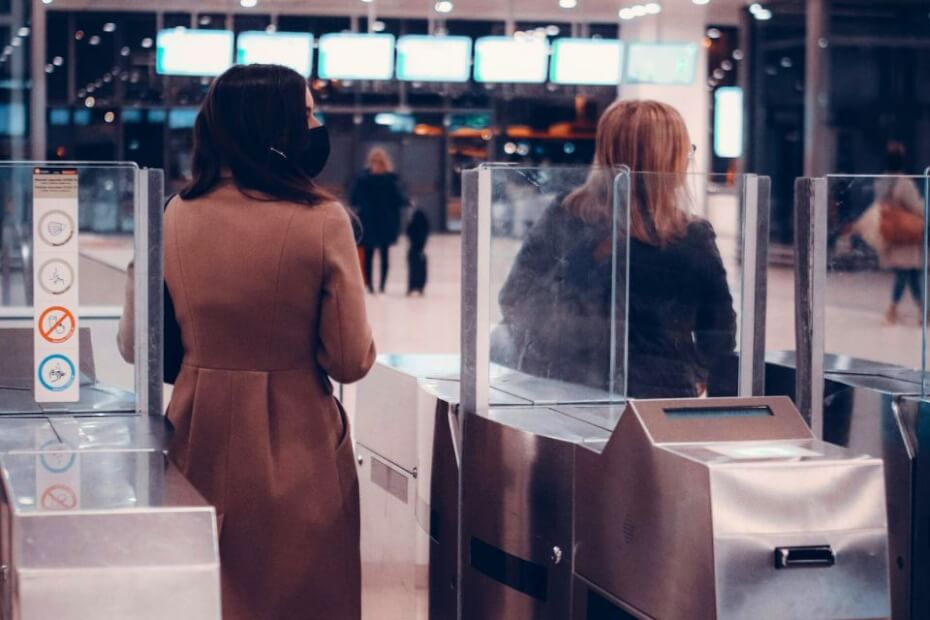
The House of Lords’ Justice and Home Affairs Committee expressed doubts about the effectiveness of its new Electronic Travel Authorization (ETA) scheme in improving border security.
It cautioned that implementing the ETA “too swiftly” could undermine “public confidence” in the United Kingdom’s (UK’s) border management.
The Committee added that the government’s “potentially uncoordinated approach to implementation” could cause “major travel disruption” at the border.
“The Government, Border Force, and the public need to be ready,” Lord Foster of Bath, chair of the Committee, said in a news release.
He added, “These changes need to be communicated as a priority.”
Lord Bath noted that there had already been significant disruption at Dover and Kent due to delays at the border.
UK travelers have also suffered “long queues at airports when systems are down,” like the recent electronic gate systems outage.
Lord Bath stressed that “Planning for a gradual and well-coordinated implementation of the new schemes is vital” to avoid similar chaos at the border.
After investigating the upcoming new border check systems, the Committee published a letter to Tom Pursglove, Minister of State for Legal Migration and the Border.
The inquiry covered the widespread rollout of the UK’s ETA before the end of the year.
It also included the European Union’s (EU’s) Entry/Exit System (EES) and the ETIAS, or the European Travel Information and Authorization System.
The EU has stated that the EES will be operational by October 2024, while the ETIAS will launch in mid-2025.
ETA’s effectiveness in securing UK border
Lord Bath emphasized that the Committee supports the ETA’s “advanced collection of more information” about short-stay non-visa visitors.
“However, we question whether the ETA can live up to its original objectives,’ he said via a news release.
The Committee chair stated that the doubts stem from “uncertainties about the quality of available data about visitors.”
The Committee said there are “legitimate concerns” about not having “real-time access to a crucial” EU database.
It added that there could also be issues on the reliability of “data provided by some countries.”
The Committee suggested expanding the questions in the ETA application to capture more information about each traveler.
It also insisted that the government appoint a new Independent Chief Inspector of Borders and Immigration as soon as possible.
“The ETA should be a priority for inspection,” the Committee stressed.
ETA for transit passengers
According to the Justice and Home Affairs Committee, “the justification for requiring transit passengers to have an ETA is unclear.”
“We are not convinced that transit passengers should require an ETA,” Lord Bath said.
He added that it’s “not least because of the significant economic impact it will have on Heathrow.”
Heathrow Airport, UK-based airlines, and other aviation groups have said that requiring an ETA for transit passengers puts the UK at a huge disadvantage.
Thomas Woldbye, Heathrow CEO., argued that the ETA for transit passengers curtails the UK’s global connectivity.
The ETA is an extra cost that may lead passengers to transit through other European airports that allow it for free.
It may already be having an impact as Heathrow recorded its lowest monthly proportion of transfer traffic in more than a decade.
Heathrow Airport and UK-based airlines rely on connecting passengers and flights to retain its status as a central global hub.
This is crucial for the UK’s tourism, trade, and international connections, providing London travelers convenient access to global destinations.
ETA and the Common Travel Area
The Committee is also concerned about how the government will enforce the ETA in the Common Travel Area (CTA).
In particular, the Committee cited how it could negatively affect “cross-border tourism in Northern Ireland.”
Almost 70 percent of tourists visiting Northern Ireland come from the Republic of Ireland.
Many Northern Ireland officials and travel industry experts have pointed out the real risk that the ETA could hinder Northern Ireland’s tourism economy.
They fear that independent travelers and tour operators could exclude Northern Ireland from itineraries due to the added cost of the ETA.
However, the Committee did not recommend an ETA exemption for short-stay visitors coming to Northern Ireland from the Republic of Ireland.
Instead, it “urges the government to work on a solution” and “clarify the position” of such visitors.
Implementing the ETA on the open land border between the Republic of Ireland and Northern Ireland could also be problematic.
Travelers crossing the open land border without knowing they need an ETA may inadvertently break immigration laws.
This could also be used as a potential loophole in the overall effectiveness of the UK’s new border check system.
Potential major travel disruptions at the border
The Justice and Home Affairs Committee said the “timetable for the implementation of changes at the border is extremely ambitious.”
There has been “limited public awareness” about the upcoming new border check system.
According to a survey, over half of UK citizens are unaware of the EU’s EES border check system.
“We are concerned about the pace of change given the current inadequacies in the information being made,” Lord Bath said.
The Committee stated a “lack of coordination with the EU on the launch of its schemes.”
It stressed that “challenges and delays [are] likely to arise” if both the UK ETA and the EU’s EES are rolled out at the same time.
Lord Bath emphasized the need for more time to quickly address any issues arising during the early stages of launching new border check systems.
Travel and transport officials have reported possible 14-hour delays at the Port of Dover and snaking lines at St. Pancras Station once the EES is active.
The app meant to reduce border queues and help travelers register passport and biometric information ahead of time won’t be ready for the EES launch.
Transport Minister Guy Opperman said there will be a six-month soft launch period of the EU’s EES border check system.

